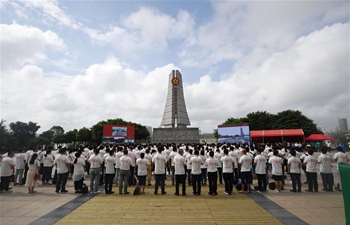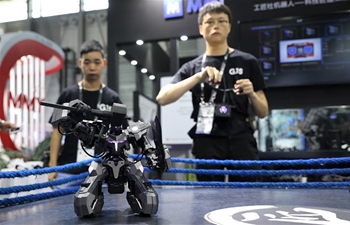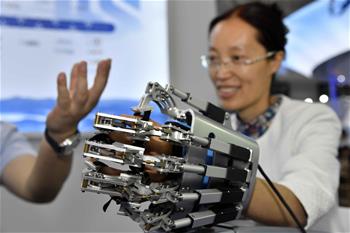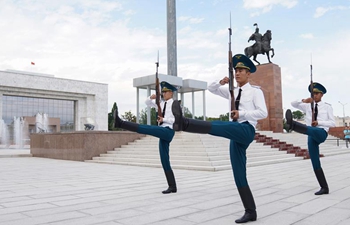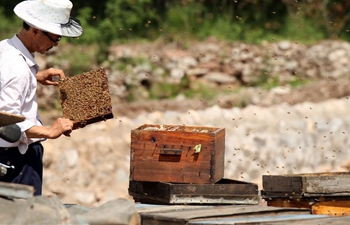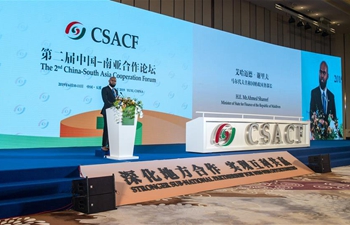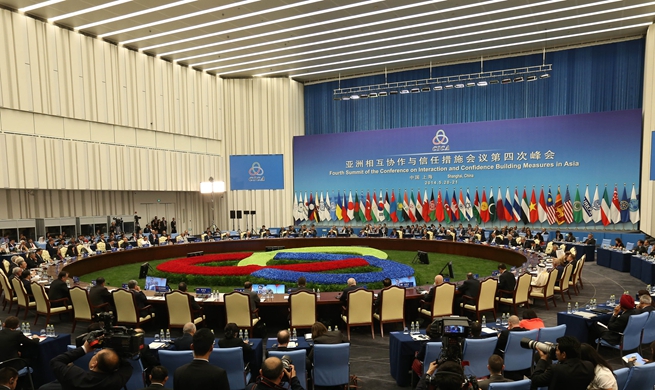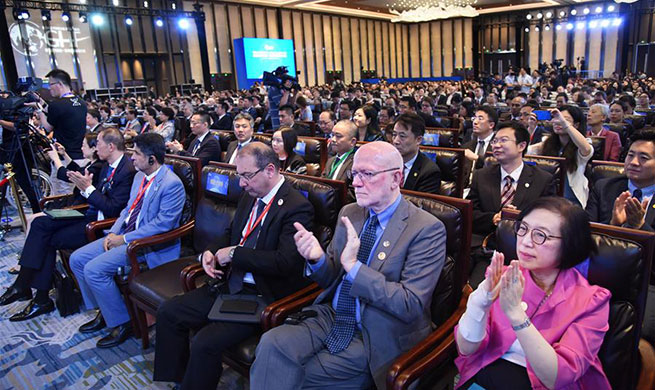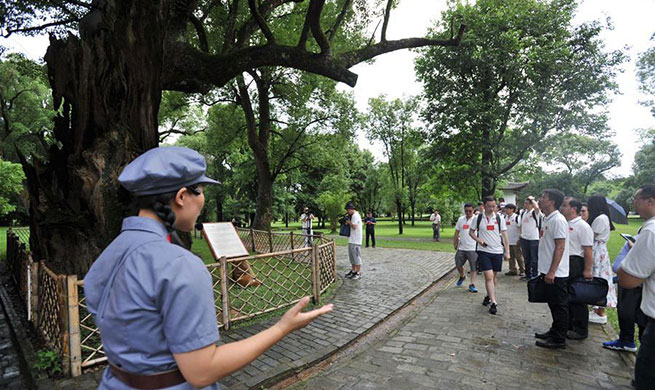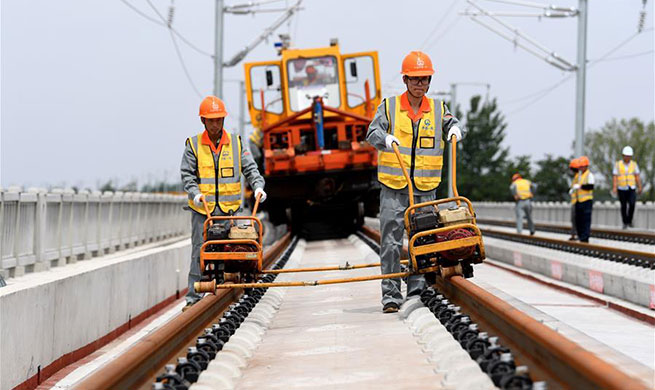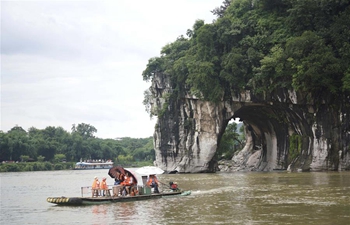HOUSTON, June 11 (Xinhua) -- When a PhD student of physics from China's prestigious Peking University applied to the U.S. embassy for his visa, he never expected a month-long wait that forced him to give up his post-doc program.
"I applied for U.S. visa on May 7 and was asked to submit more documents. Until now, my visa application status was unchanged on the website," the student told Xinhua in a recent interview on condition of anonymity.
The reason for the delay was "administrative processing," a designation for visa applications undergoing additional vetting for security reasons.
In recent months, many Chinese students and scholars have become familiar with the term as they experienced difficulty getting their U.S. visa.
Chinese students said they have encountered U.S. visa restrictions, prolonged review time and shortened time validity since last year, and in particular this year. Some students failed to complete their studies and some scholars were unable to attend meetings due to the restrictions.
A 2018 survey by the Institute of International Education, a non-profit research group based in New York, showed that nearly half of the 540 higher education institutions that responded in the United States reported declines in new Chinese student enrollment.
Reasons cited were visa delays and rejections and the current social and political climate. Almost 80 percent expressed growing concerns about recruiting students from China.
This situation caused concerns among some American professors. Michael Hasler, a lecturer at the University of Texas at Austin, told Xinhua that Sino-U.S. educational exchanges will be limited due to the visa restrictions.
"I believe some of the actions that have been taken affect the overall climate negatively and there is no doubt that will also affect U.S.-China educational exchanges," he said,
Hasler also expected enrollments of Chinese students in U.S. universities to continue to decline. He said that Chinese students who seek job opportunities in the United States will likely have a very difficult time.
The number of Chinese students enrolled in U.S. universities has been increasing since the two countries established diplomatic relations in 1979. Statistics released by the Institute of International Education (IIE) shows that over 363,000 Chinese students were enrolled in U.S. schools in the 2017/18 academic year, representing a third of all international students here.
Scholars believe that lower enrollment among Chinese undergraduate and graduate students will result in less income among American universities and colleges, causing financial problem for some of them.
Jon R. Taylor, a political science professor at University of St. Thomas in Houston, said longer waiting time for visas will discourage many Chinese students from attending American universities, and they will likely apply to Canadian, Australian and European universities. The reduced number of Chinese undergraduate and graduate students will have both academic and economic impact on U.S. universities.
"This will have a two-fold impact: the loss of visiting Chinese scholars who can and do provide important research as well as the loss of an important revenue source for a number of U.S. universities," said the professor.
Nearly all professors and college student interviewed by Xinhua said they attach great importance to educational exchange, which should be treated separately from other things in bilateral relations.
"These (U.S.-China educational) exchanges encourage the free-flowing exchange of scholarly research, the fostering of academic collaboration, the development of university-to-university relations, the cultivation of personal connections and friendships, and the promotion of greater cultural understanding," Taylor pointed out.
According to him, using students and scholars as pawns against China will have profound negative impacts. "It could likely lead to diminished cooperation and collaboration in a number of areas of scholarly research. And that could lead to long delays in disseminating important findings that could help us to understand or solve a host of issues confronting the world today," he noted.
A PhD student surnamed Li from Rice University in Houston, Texas said the United States will only hurt itself if it no longer keeps openness in education and research.
"The soaring of American economy and technology is benefited from global talents. If the United States changes its policy of openness and tolerance for different cultures, its attractiveness to the world's talents will gradually decline, which is not conducive to the development of itself," said the student.
